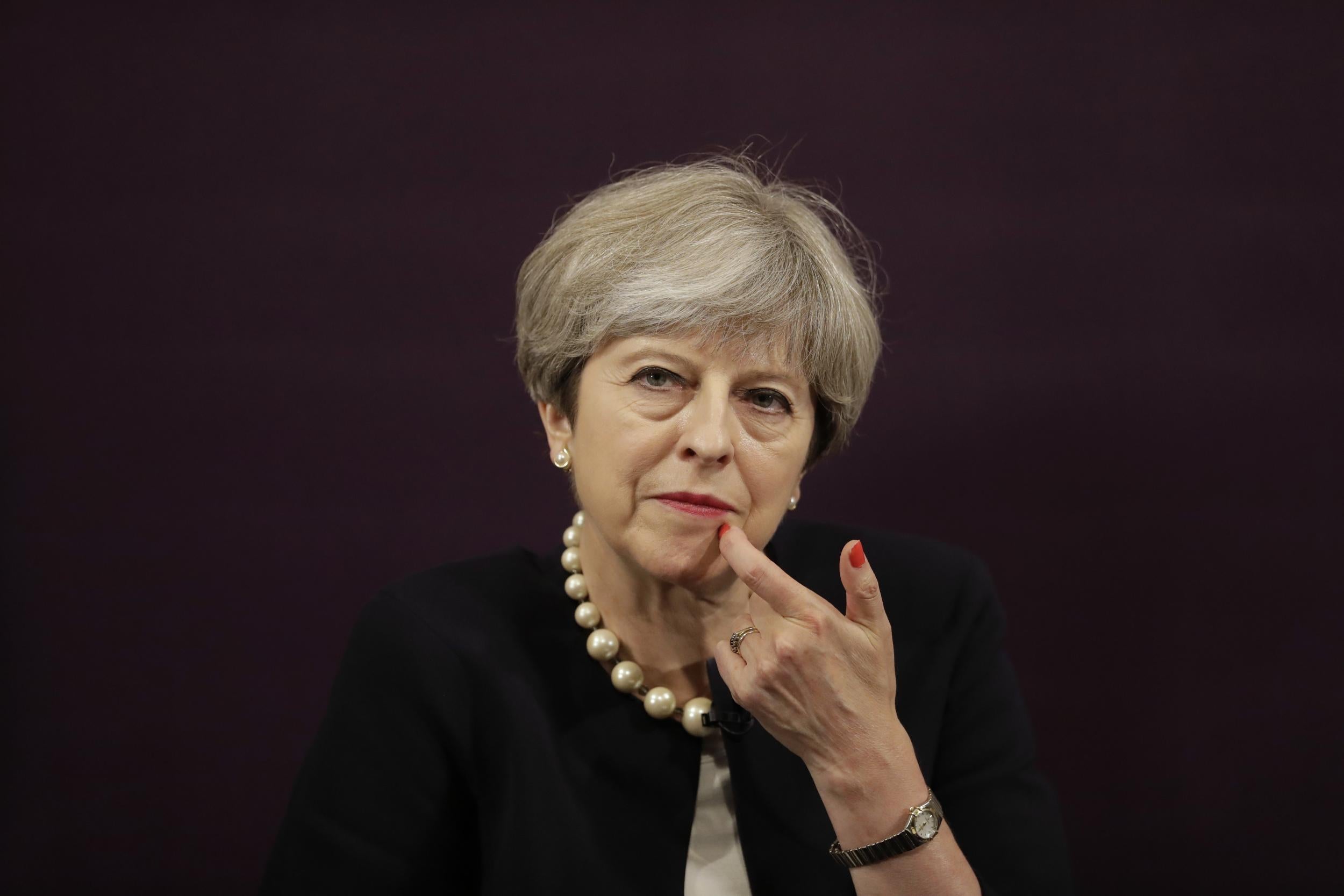The clock is ticking on Brexit: it is time for Theresa May to be straight with people
The Prime Minister and her senior colleagues must have thought about what might happen if the Brexit talks go badly, but do they have something as coherent as a plan?

Your support helps us to tell the story
From reproductive rights to climate change to Big Tech, The Independent is on the ground when the story is developing. Whether it's investigating the financials of Elon Musk's pro-Trump PAC or producing our latest documentary, 'The A Word', which shines a light on the American women fighting for reproductive rights, we know how important it is to parse out the facts from the messaging.
At such a critical moment in US history, we need reporters on the ground. Your donation allows us to keep sending journalists to speak to both sides of the story.
The Independent is trusted by Americans across the entire political spectrum. And unlike many other quality news outlets, we choose not to lock Americans out of our reporting and analysis with paywalls. We believe quality journalism should be available to everyone, paid for by those who can afford it.
Your support makes all the difference.The British preparations for Brexit talks take a big step today. Michel Barnier, the European Union’s chief negotiator, will meet Jeremy Corbyn, Nicola Sturgeon and Carwyn Jones, representing the official opposition and the governments of Scotland and Wales respectively.
Meanwhile, the Government will publish the Repeal Bill, the pivotal legislation to import EU law to the UK statute book. And the Office for Budget Responsibility, the independent umpire of the economy, is to publish a report on the fiscal risks ahead.
Yet the effect of all this activity is to take us little further forward and – if anything – to emphasise how badly prepared the Government is for the crunch decisions that will soon have to be made. This conclusion is reinforced by the National Audit Office report published overnight, which suggests that the computer systems needed to administer post-Brexit customs checks will not be ready in time.
Mr Barnier won this week’s trash-talk exchanges. After Boris Johnson, the Foreign Secretary, said on Tuesday that the EU could “go whistle” if it wanted us to pay as much as £60bn to settle our account, Mr Barnier said yesterday: “I’m not hearing any whistling. Just the clock ticking.”
It was a brutal reminder that time is not on the UK’s side in these negotiations. And Mr Barnier’s conversations with Mr Corbyn, Ms Sturgeon and Mr Jones are a clever way of making the point that Theresa May is not the sole power on the other side of the negotiating table.
Emily Thornberry, deputising for Mr Corbyn at Prime Minister’s Questions yesterday, enjoyed herself by quoting cabinet ministers as saying different things from each other and, in the case of David Davis, the Brexit Secretary, different things from himself on different days. This was entertainment with a deeply serious purpose. The terms of Brexit are hugely important for this nation’s future, and yet the Government appears divided and uncertain about the way forward.
Ms Thornberry put her finger on the key point, which is the danger of reaching the March 2019 deadline for Brexit talks without agreement. As Philip Hammond, the Chancellor, has said, and Ms Thornberry quoted him, that would be a “very, very bad outcome”.
Damian Green, the First Secretary of State who stood in for Ms May, fought back mildly with the best argument available to him. He pointed out “that it is the position of her leader and her party that, whatever is on offer, they will accept it”. This is a fair point, and Labour was able to go through the entire election campaign without explaining what would happen if no deal could be done by the time Mr Barnier’s clock stopped ticking.
But Labour is not in government – even though it might sometimes feel like it – and it is Ms May’s responsibility to explain how she intends to avoid the disaster of crashing out of the EU without a deal. All Mr Green could say to his opposite number was that “her fear of no deal is probably overstated”. How very reasonable of him, but not very reassuring.
Of course the Prime Minister and her senior colleagues must have thought about what might happen if the Brexit talks go badly. Whether they have something as coherent as the contingency plan about which Ms Thornberry asked seems less plausible.
At some point, Ms May is going to have to break with the more unrealistic elements among the Brexiteers in her own party. There is a majority in Parliament, which reflects the majority of the peoples of all parts of the UK, for a pragmatic, flexible and cooperative Brexit. All the hard problems of the negotiations can be postponed into a long transitional arrangement that keeps Britain as close to the EU as possible.
However, that means being straight and open with the British Parliament, the British people and our EU partners. If she will not do it, she should give way to someone who will.
Join our commenting forum
Join thought-provoking conversations, follow other Independent readers and see their replies
Comments